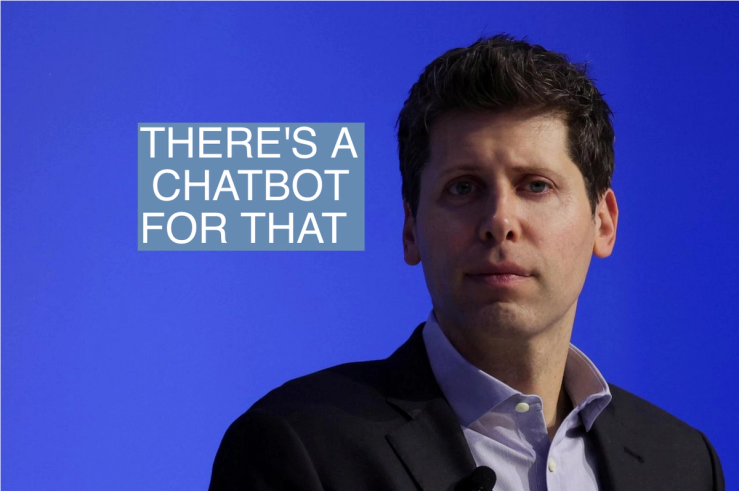
Semafor Signals
OpenAI’s new app store could democratize AI and set up a clash with Apple
Insights from TechCrunch, The Verge, and The Register

The News
After several delays, OpenAI’s GPT store — where people will be able to share and monetize customized versions of ChatGPT — will officially launch next week. The project was postponed late last year, in part due to the uncertainty caused by the firing and rehiring of OpenAI CEO Sam Altman.
The move is already being compared to the launch of Apple’s App Store in 2008, which allowed a wave of developers to create apps within Apple’s ecosystem. It may be the start of OpenAI’s transition from offering ChatGPT as its core product to becoming a platform service that others build applications on top of.
SIGNALS
GPTs could help democratize access to AI
Custom GPTs can be created with smaller amounts of data, allowing people to build artificial agents that specialize in specific, narrow tasks. Some examples proposed by OpenAI include a board-game explainer, a negotiating expert, or a creative writing coach. Or, as Semafor’s Gina Chua suggested, an AI chatbot that ingests a newsroom’s stories and style guides to help journalists. Making GPTs via OpenAI’s platform can be done in plain English and doesn’t require coding, lowering the barriers to entry. While the store may democratize AI app creation, the move could spell tougher times for the consultancies that have sprung up to build custom GPTs for customers, TechCrunch reported.
It’s unclear how developers will make money off their products
The email OpenAI sent to developers this week announcing the launch of the GPT store didn’t reveal any details about how they will be paid, although more information is expected soon. When OpenAI unveiled the project in November, Altman told The Verge that he planned to share company revenue with developers rather than take a cut of sales. One thing developers won’t need to worry about is potential copyright lawsuits connected to the data used to train their apps. OpenAI has said it will indemnify them from copyright claims, which could be consequential if they start to earn real money from building GPTs.
The move sets up a potential clash with Apple over third-party app stores
Sources within OpenAI have told reporters they expect the store to be accessible via both the web and in the ChatGPT app. “I’d love to know how Apple, which famously doesn’t take kindly to iOS apps housing their own app stores, feels about that,” The Verge’s Alex Heath wrote. Apple continues to fiercely guard its grip on the app market, even as regulations in the European Union may force it to finally allow alternative app stores on its devices this year. Apple has also fallen behind rivals like OpenAI, Google, and Microsoft when it comes to developing advanced AI. “There’s a lot of anxiety about this and it’s considered a pretty big miss internally,” one source told Bloomberg.

